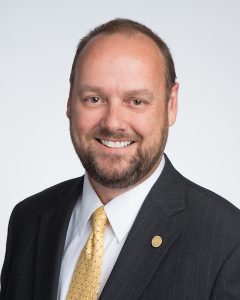[media-credit name=”Courtesy of UW Oshkosh” align=”alignleft” width=”240″] [/media-credit]
[/media-credit]
By: Chancellor Andrew Leavitt
Since the early 1980s, U.S. News and World Report has produced an annual edition assessing and ranking colleges and universities around the country. The magazine looks at graduation and retention rates, alumni giving, student selectivity, faculty resources and a few other metrics. You and your families may have leaned on this report as a resource while shopping for a quality college experience that was the right fit.
For years, the U.S. News rankings have stirred debate in higher education. Sure, third-party accountability is a good thing. However, many believe the hype over the rankings and colleges and universities’ competition to make the magazine’s grade quickly overshadowed any original, well-intentioned value to prospective students. Many institutions around the country continue to invest great sums of money and marketing energy to climb higher on the U.S. News scoreboard. Other universities aren’t too interested.
Count UW Oshkosh in the latter, for good reason.
You may have seen this week’s investigative review by news outlet POLITICO in your social media feeds. Among other findings, it “shows that the criteria used in the U.S. News rankings—a measure so closely followed in the academic world that some colleges have built them into strategic plans—create incentives for schools to favor wealthier students over less wealthy applicants.” The report is stirring a new and necessary conversation about the value of these rankings.
I believe POLITICO’s findings affirm UWO’s stance. We don’t play this game. The exclusiveness and selectivity baked into U.S. News’s metrics and methodologies fly in the face of this institution’s mission. We will not encourage a culture in which spending more resources on fewer students who come from more affluent families increases an institution’s standing and status. That is the very opposite of what we strive for.
We are for inclusivity. We are about helping more students from a spectrum of backgrounds and experiences succeed in and after college. We are about helping more students transform their lives. As I shared with UWO faculty and staff members on Opening Day last week, we must lower the barriers of access to anyone who seeks to better themselves and their communities through education.
I encourage you to read the POLITICO report for yourself at politico.com, and come to your own conclusions. Some may accuse me of sour grapes based on UWO’s U.S. News rankings compared to sister institutions and regional competitors. Let me be clear: we embrace metrics—better metrics that actually demand that this institution improve on behalf of its students, not rise up an exclusivity index.
I encourage you to read our UWO Strategic Plan update: strategicplan.uwosh.edu. You will see that we are not hiding from accountability. Our performance and our goals are front and center.
We double down on U.S. News and World Report’s concentration on retention and graduation rates. We additionally push ourselves to close access gaps and increase the number of students of color, low-income students and first-generation students at UWO. We need to reduce the required credits to degree and, thus, the time and cost necessary to graduate from UWO while we enhance the quality of students’ educations. We have to help knock down the financial obstacles many students face as we enrich their experiences. It’s a tall order. We accept the challenge.
We want to boost grants and broaden the opportunities students have to engage in undergraduate research with faculty mentors. We want to increase the already high percentage of UWO graduates employed in full or part-time jobs, continuing their educations or serving in the military or volunteer services shortly after earning their diplomas.
Bottom line: Don’t measure us by this magazine. Measure us by our mission—by your mission.
-Chancellor Andy Leavitt


